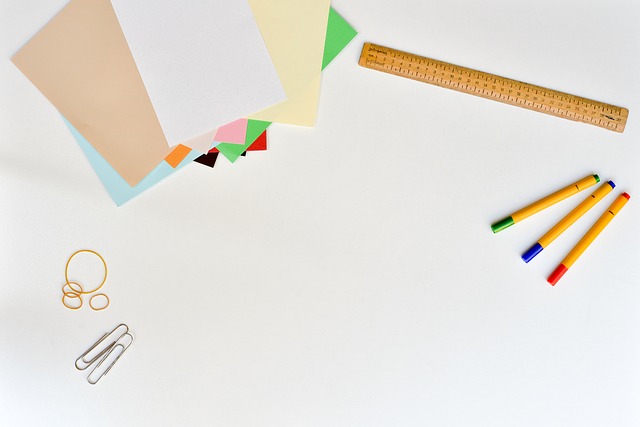How to Deal With Writing Distractions
Copywriting and content writing can be a tiring process, especially when it takes up most of your day. It’s easy to become distracted and lose focus on what you’re writing.
And distractions at work can be more time-consuming than you think. It takes about 23 minutes to get back to work fully after being distracted, which means that every time we get distracted by something, we could be wasting 20 minutes just trying to focus again.
As someone who’s as easily distracted as the dog from Up when there are squirrels around, I have a lot of experience in ways to make myself focus on my writing.
So here are my tried-and-true methods for getting your work done, distraction-free:
Start Your Day with a List
Alright, confession time.
I have a bit of a list problem. I effing love them.
Anything that I can put in list form, I do put in list form. Shopping lists, book lists, to-do lists, habit lists, bucket lists, you name it, I have a list for it.
Lists make me feel like I have my life in order no matter what else is going on around me. I know I can conquer the world if I add it to a list.
So I know what I’m talking about when I say that putting everything you have to do during the day onto a list makes your day easy and distraction-free.
Start every day by writing a list of everything that needs to be done that day (even better, write the list at the end of the previous day, so you’re one step ahead in the morning).
Having what you’re supposed to be doing written out in front of you makes it more likely that you’ll focus on what you have to do, and less likely that you’re going to get pulled into doing something else.
If it’s not on the list, it’s not getting done.
Schedule Your Day
This is something that I’ve heard a lot of other people saying when they’re asked how they stay focused on what they have to do.
It’s about looking at the times of day that you’re most productive and scheduling your writing for that time.
The theory is that you’re less likely to be distracted at your most productive time, so you’re more likely to get the work done without losing concentration.
Personally, this doesn’t work for me because I don’t have specific times of day, every day, that I feel most productive. It depends on the day. How much sleep I had the night before. What I had for breakfast or lunch. How much coffee I’ve had. There are too many variables for this technique to work for me.
But it works for others, so if you think it might work for you, give it a go.
Keep a Notebook Handy
If you suffer from ‘too many ideas syndrome’ (it’s a real thing, I swear), then you know all too well how easy it is to be distracted by a shiny new idea when you’re stuck on something else.
It could be a new blog post idea, or video idea, or any other kind of content that isn’t what you’re supposed to be working on right now.
New ideas always look more appealing than the writing you’re doing right now, especially if you’re starting to flag a little or the current work is getting a bit stale.
This doesn’t mean you should go running to the new idea and abandon your current work. If anything, it means your current work needs more attention to get it exciting again.
But you also don’t want to lose this new idea because you will eventually be looking for something else to work on.
This is where keeping a notebook close to your desk comes in handy. You can jot down the new idea and then get back to work on what you’re already doing.
The new idea will be waiting for you in your notebook once you’ve finished your work, and you don’t have to worry about forgetting it.
Declutter Your Workspace
Okay, I realise this tip might not seem the best for helping you get your work done because you have to stop what you’re doing to do it, but trust me. I suppose it’s more of an ongoing process that will help in the long-run.
A cluttered desk (and the area around it) is one of the biggest distractions you have to deal with (after social media, more on that in a minute).
I currently have a cork board in front of my desk filled with random memories, cards, wedding invitations, and general stuff that I don’t want to throw away. I keep it in front of my desk because I also have a calendar on it and I like having my calendar (with big red deadline marks) right in front of my face.
But I can’t count the number of times I’ve sat staring at everything else on the board, reading the cards I’ve read a thousand times before and could probably recite off-by-heart at this point.
And when I’m reading those cards, I’m not getting any work done.
So whether it’s something on the wall that distracts you, like me, or stuff on your desk that you always find yourself playing with instead of doing work, get rid of it. Put it somewhere else where it won’t be such a distraction for you, throw it away if you have to. Just get rid of it.
In my case, I think I’ll just have to invest in a desk calendar and put the cork board far far away.
Put Your Phone Away
There is nothing more distracting to your writing than the ping of a phone notification.
When our phones go off, we instinctively reach for them before we even realise what we’re doing. But once we’ve picked it up to check one thing we inevitably end up checking everything else.
I’ll just quickly check this Facebook notification, or just a quick browse through Instagram (my finger automatically goes to that little purple camera no matter what I’ve picked my phone up to do, it’s a problem).
But before we know it half an hour has passed and all we’ve done is scroll through multiple social media accounts and got no writing done whatsoever.
If possible, put your phone in another room, so you’re not constantly being distracted by its buzzing.
If that seems a step too far, put it on silent, and at least keep it away from your desk.
If you’re worried about missing an important phone call, some phones have a ‘Do Not Disturb’ setting that means no messages, notifications, or phone calls will come through unless they’re from someone you’ve said you want to hear from. So select the important person and block everyone else.
Give yourself designated phone time if you really need it, but remember, Facebook, Twitter, and Instagram will all still be there when you’re writing is finished. If this is all you’re doing on your phone then surely it can wait.
Put a Block on Distracting Sites
Easily distracted people are sneaky (I should know, I’m one of them). We know that social media doesn’t just exist on our phones. So we can put whatever apps we want on Do Not Disturb on our phones, but we know we’ll be clicking into them on our desktop in no time.
If you’re one of these people, then it’s worth blocking distracting sites from your desktop as well.
Software like Freedom or Cold Turkey let you schedule times that distracting sites like Facebook and Twitter can be accessed. After that, they’re blocked until you schedule more time.
So you can give yourself some social media time and then block them once you need to get your writing done so they can’t distract you.
(Freedom also works on your phone, so there’s definitely no excuses for using these sites when you should be writing.)
Related: The Best (And Mostly Free) Tools to Kick Your Productivity Up a Notch
Delegate If You Can
Sometimes we can’t focus on what we have to write because we have too much going on in our heads.
If you have a long list of content to create or copy to write it can be hard to focus on just one piece at a time.
If you have people on your team who can write, edit, or proofread, it might be worth delegating some stuff to them to clear your own head a bit (or hire a copywriter if you’re the only one who can write on your team and are struggling to keep up with the workload).
Having someone else take some of the pressure off you makes it easier to focus on what you’re doing and makes your mind less likely to wander off.
Walk Away
If all else fails, and you still can’t get your mind to focus on what you’re meant to be writing, then take it as a sign that you need to walk away for a bit.
There’s no point in pushing your brain to do something it really can’t focus on, it’s only going to make it worse, and make the work ten times harder to get done.
Leave your desk if you can. Go for a walk, have a shower, cook some food, do something that will clear your mind of your work.
Or if you’re in an office and can’t get away completely, even just walking to the kitchen to make a cup of coffee, or to the bathroom will help to take your mind off the work for a few minutes.
Going back to your desk a bit later with a clear head empty of distractions will make for much easier writing.
Distractions can be a pain in the arse when you’ve got a deadline looming and need to get the writing done. But putting pressure on yourself and forcing yourself is only going to wear you out.
Use these tips when you’re struggling to focus, but remember to walk away if you truly need to.



